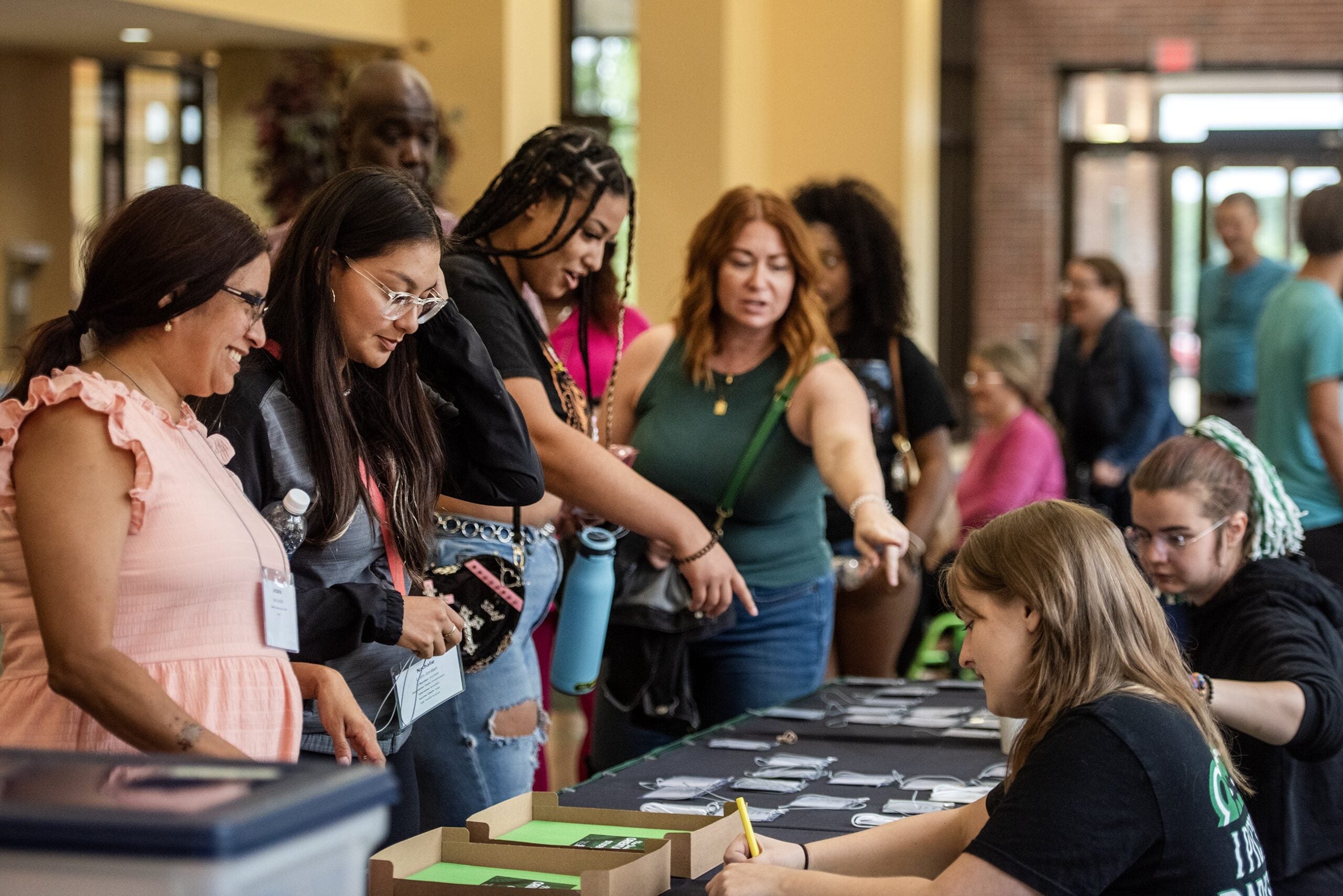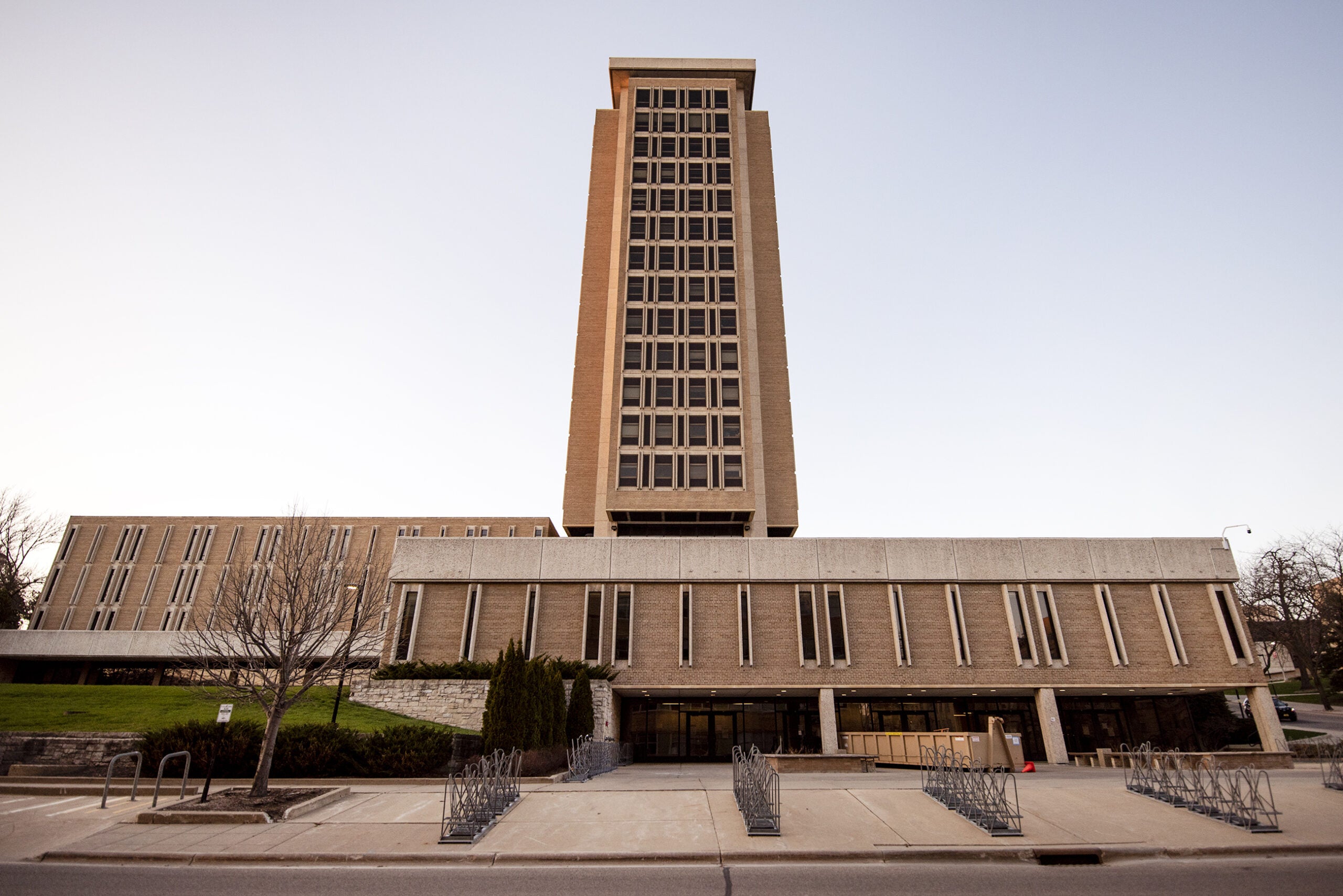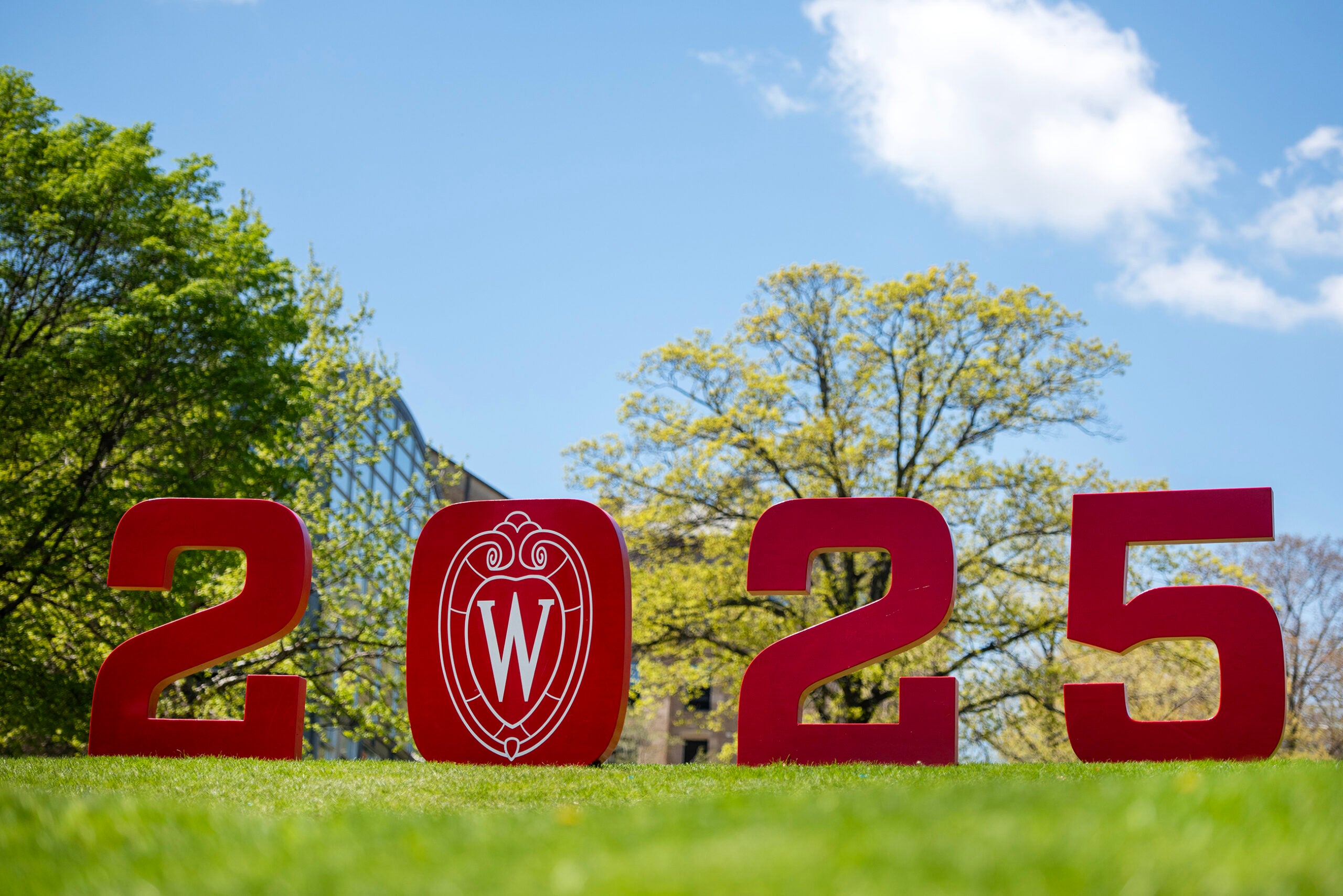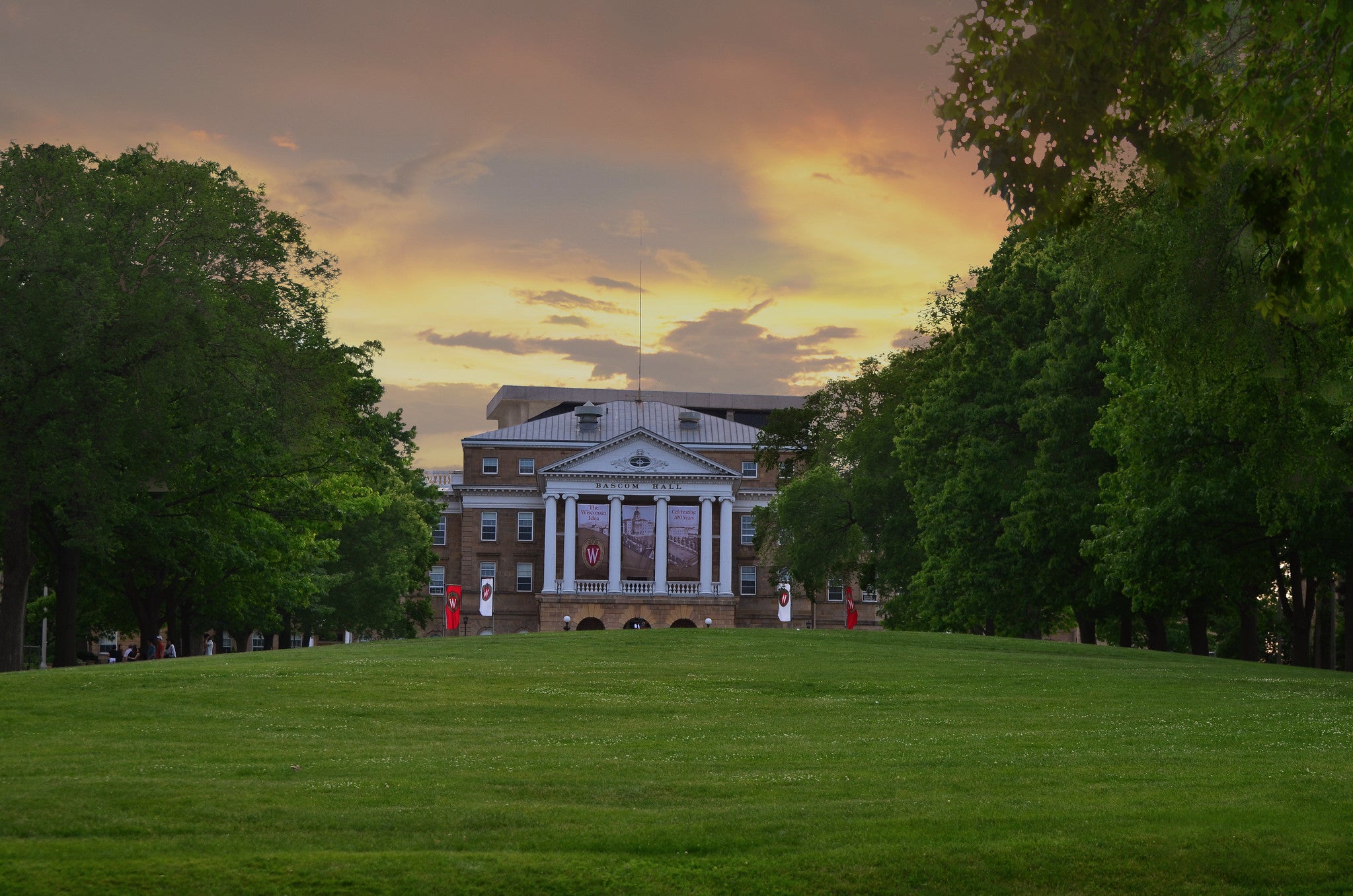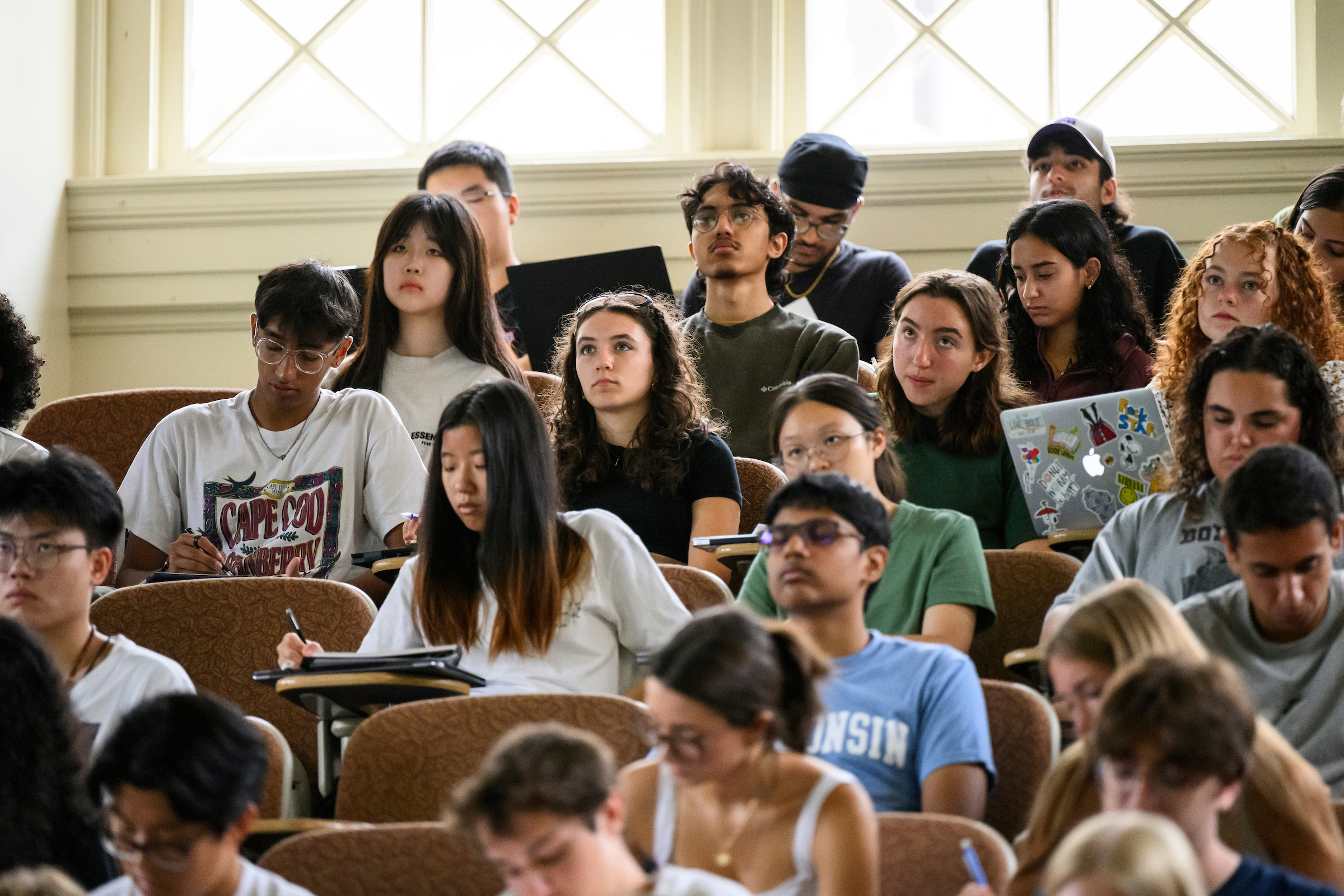In June, the Wisconsin Legislature approved pay increases for the 34,000 employees of the Universities of Wisconsin. Months later, Republican Assembly Speaker Robin Vos said legislators wouldn’t give final approval for the pay raises until the university system eliminates 188 positions — all the university system’s jobs Vos claims are dedicated to diversity, equity and inclusion. Last month, a GOP-controlled committee affirmed the decision: The approved raises would go to all state employees except those who work within the university system.
In response, Gov. Tony Evers sued the Legislature, calling the move an unconstitutional “legislative veto.”
The ongoing battle represents an escalation in a decades-old debate about how universities should promote diversity within their student bodies, in campus programming and among faculty. And it comes as universities are still reacting to the June decision by the U.S. Supreme Court barring the consideration of race in student admissions.
News with a little more humanity
WPR’s “Wisconsin Today” newsletter keeps you connected to the state you love without feeling overwhelmed. No paywall. No agenda. No corporate filter.
Records obtained by WPR show conservative activists have called for lawmakers to “apply pressure” to the UW in hopes of driving change on topics like student free speech, making conservative students feel more welcome on campus and the elimination of DEI. As Republicans are ramping up attacks, it’s left some students and many within the university system uncertain about what campus diversity policies will look like in the future.
At the Republican Party of Wisconsin’s state convention in June, 11 days before the Supreme Court’s decision striking down affirmative action in admissions, Vos said DEI stands for “division, exclusion and indoctrination” and claimed DEI programming represents “overt racism” in higher education. The conservative activist law firm Wisconsin Institute for Law and Liberty has published a list of government and university programs it claims amount to racial discrimination. Those include scholarships, teacher loans and health equity grants.
Republican lawmakers have introduced a bill specifying state financial aid programs can no longer consider a student’s “race, ethnicity, national origin, gender, sexual orientation or religion.” A spokesperson for Democratic Gov. Tony Evers said he’s likely to veto the legislation.
UW System President Jay Rothman defended the universities’ diversity programs during a state Senate hearing in June. Rothman said DEI initiatives are wide-ranging and include efforts to get more women into science and engineering fields and help returning veterans with their transition to college life.
“Those are all issues that DEI covers,” said Rothman, who did not agree to an interview for this story. “I think those are important things not only for the state to ensure that we have enough graduates coming in, but it’s also that those are the right things to do for society.”
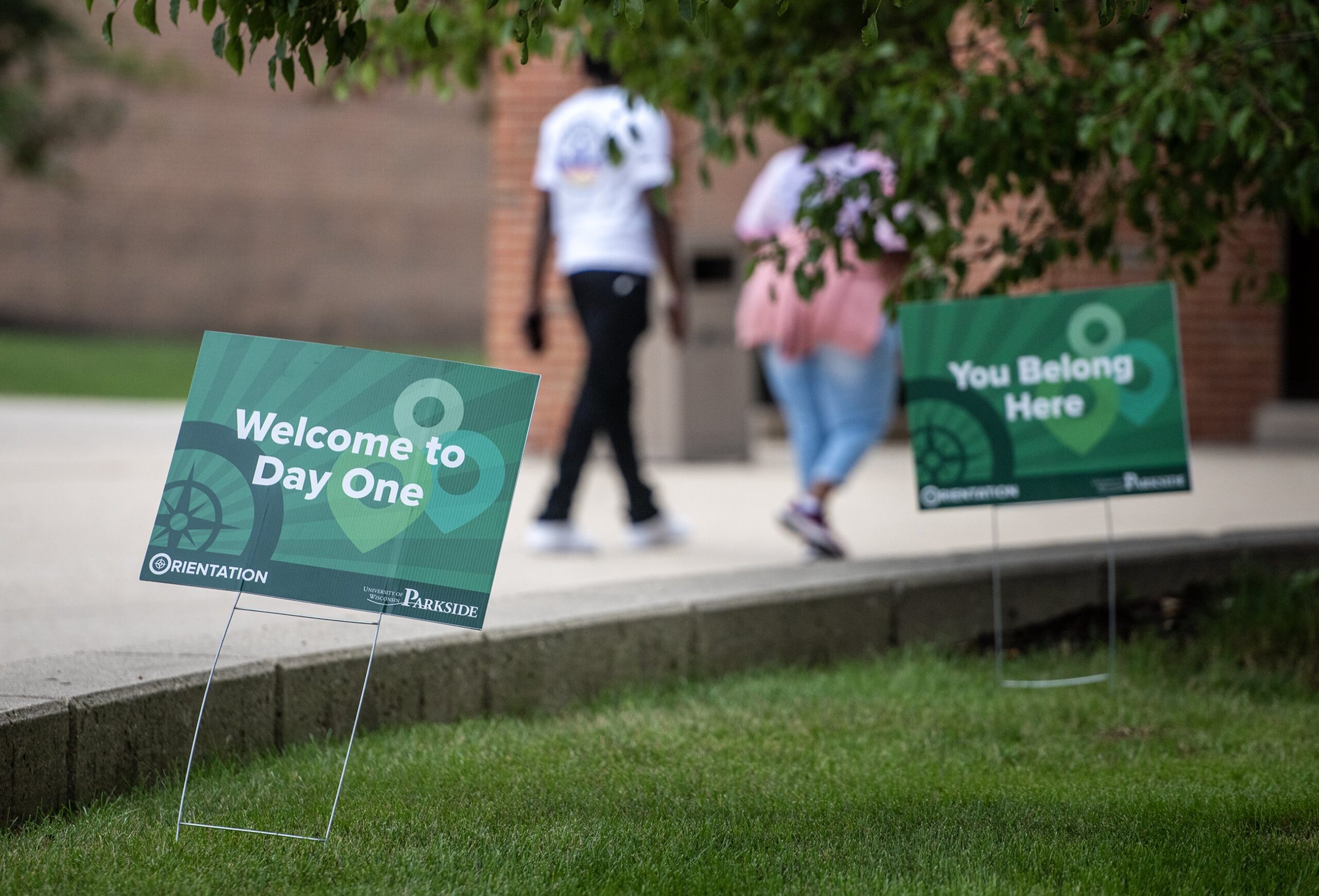
‘I just don’t understand why they would be upset about it’
At a freshman orientation event in August, students and parents at UW-Parkside watched a video welcoming them to campus. It opened with students and staff members repeating the word “diversity” while talking about the campus’s goal of helping students of all backgrounds succeed through graduation.
Students then walked to a classroom for a quiz that included questions about the definition of DEI and tips on accessing resources like the campus multicultural center.
As a percentage of the overall student body, UW-Parkside has the highest percentage of Black and Hispanic students of all state campuses at around 7 percent and 18 percent, respectively.
Across all UW campuses, as of 2022, Black students accounted for 2.9 percent of the system’s 160,782 students, while Hispanic students accounted for 7.2 percent. Asian students accounted for 5.1 percent and Native American students accounted for less than one half of a percent of the total. Students identifying as two or more races made up 3.4 percent of the student population.
For new students such as freshman Aniyyah Young of Milwaukee, the controversy surrounding diversity, equity and inclusion is all a little confusing.
“I just don’t understand why they would be upset about it,” Young said.
Young said she’s thinking about becoming a child psychologist and chose Parkside because it seemed like an inclusive campus.
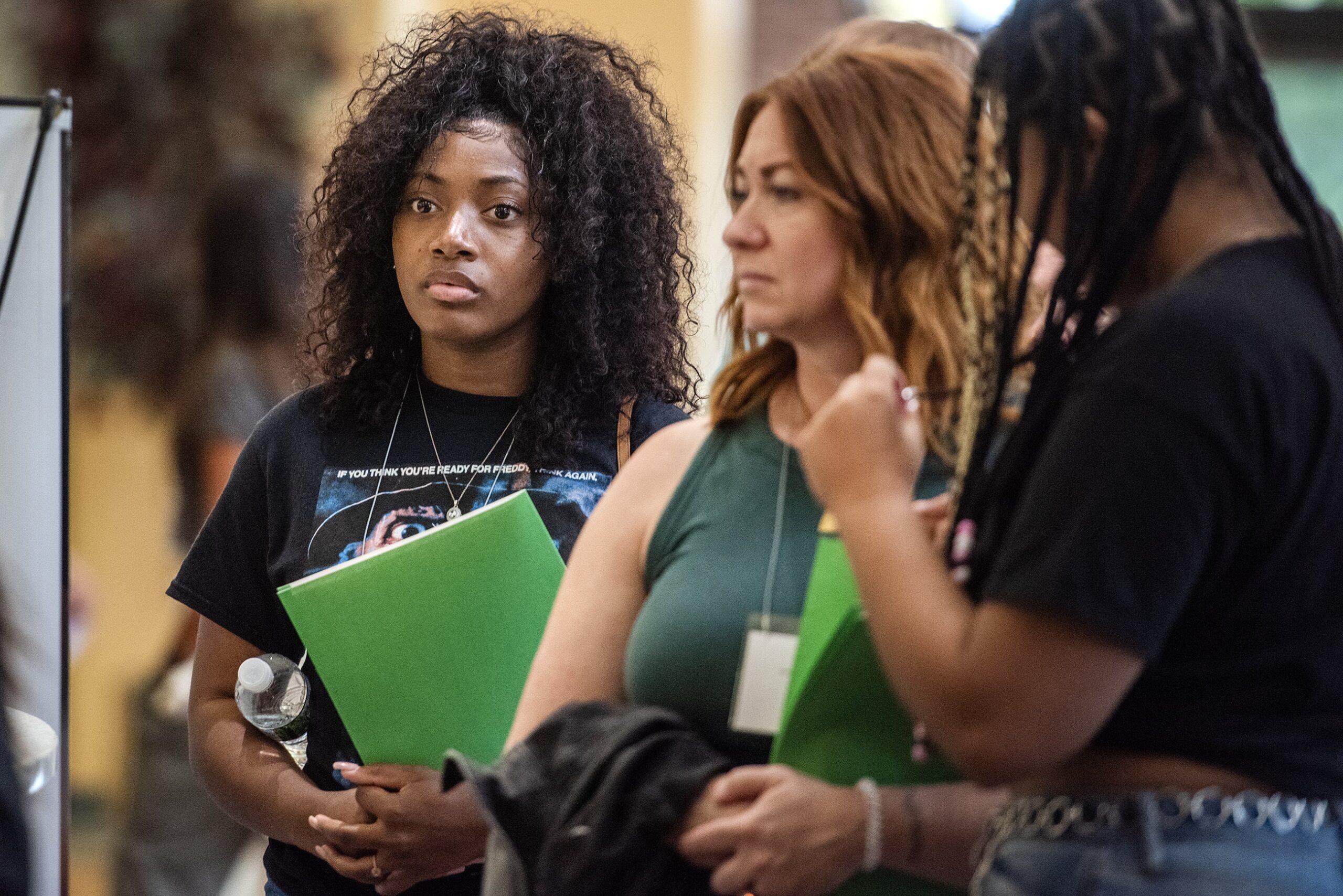
While some Republicans and conservative groups claim DEI programs aimed at providing financial or advising assistance to students from underrepresented groups amount to racial discrimination, Young doesn’t see it that way.
“I don’t think that is racial preference,” Young said. “I think that is racial appreciation.”
Six-year graduation rates, a measure used by the U.S. Department of Education, vary significantly between racial groups. Among the student class entering UW schools in 2016, around 67 percent of white students finished their degrees by 2022. Around 53 percent of Hispanic students in the 2016 cohort graduated in six years. The rate was 42 percent among African Americans and 39 percent for American Indians. Students identified by the UW System as “other Asian Americans” had the highest graduation rate of nearly 78 percent.
Another UW-Parkside freshman, Kayla Huan of Orfordville, is interested in studying business. She said she doesn’t see the harm in learning about other cultures.
“There are things you wouldn’t really think of unless you’re aware of (them) when it comes to diversity,” Huan said. “I don’t think it’s a bad thing to make yourself aware of those situations, especially in a college setting where you see so much diversity.”
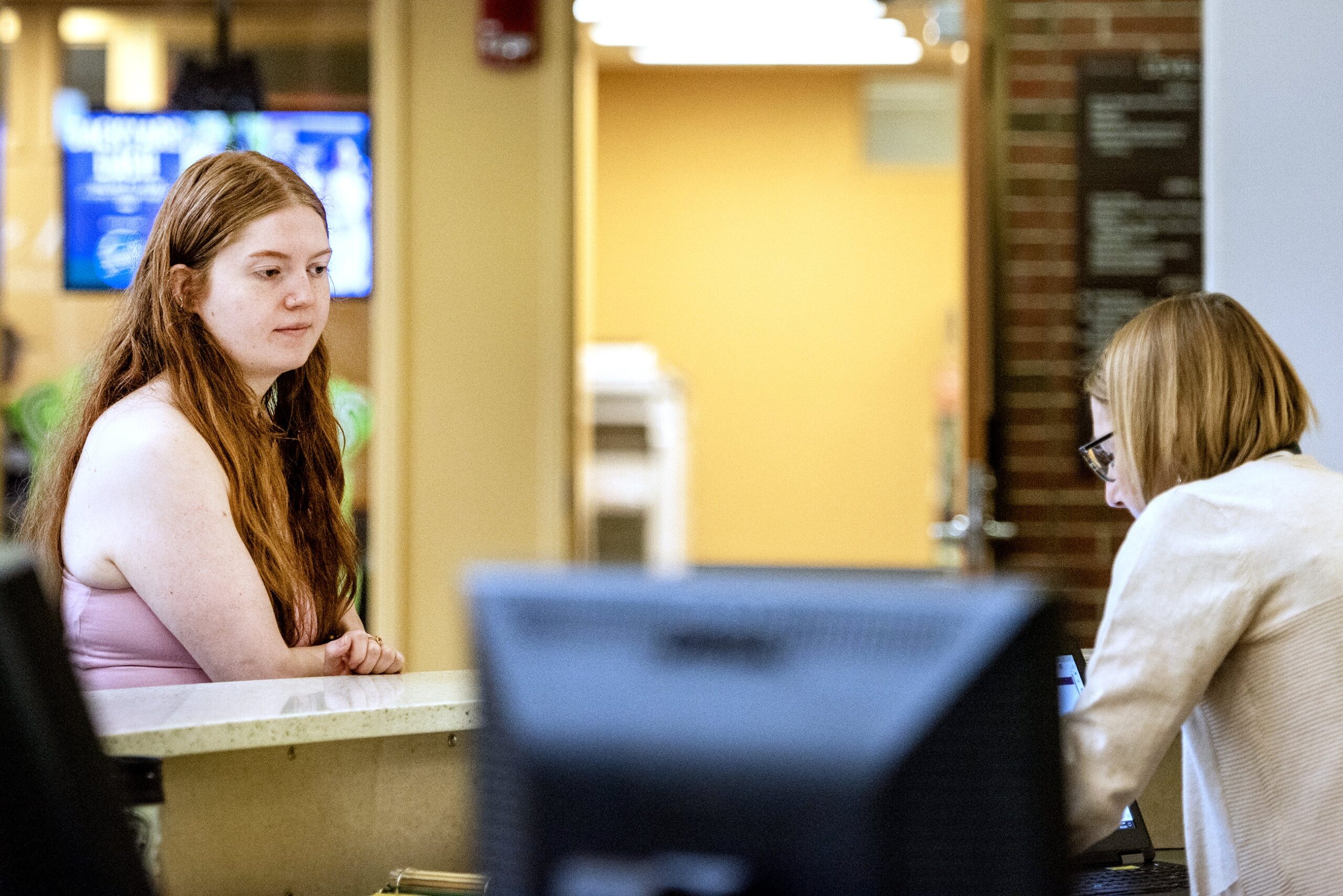
Conservative legal movement seeks to challenge diversity programming
The conservative push against DEI is a national phenomenon. The Chronicle of Higher Education is tracking 40 bills in 22 states that would prohibit colleges from having diversity, equity and inclusion offices or staff; ban mandatory diversity training; prohibit institutions from using diversity statements in hiring; and prohibit colleges from using race, sex, color, ethnicity or national admissions in employment.
Those are based on model legislation from the conservative Manhattan and Goldwater institutes, which claim there are things state legislatures can do “to reverse the illiberal takeover of higher education” through DEI offices that “stifle intellectual diversity, prevent equal opportunity, and exclude anyone who dissents from a rigid orthodoxy.”
The Wisconsin Institute for Law and Liberty has been at the forefront of the anti-DEI push in Wisconsin. The law firm sued the state Higher Educational Aids Board, claiming a minority undergraduate retention program violates the Wisconsin constitution by discriminating based on race, because the program provides aid to students from some minority groups and not others.
“DEI in all the training materials and examples I have seen is race discrimination, pure and simple,” said WILL deputy counsel Dan Lennington.
The U.S. Supreme Court’s affirmative action ruling, Lennington said, applies well beyond college admissions. He said it also applies to DEI initiatives aiming to recruit more diverse faculty members, and DEI training exercises “can amount to racial harassment.”
“If you couldn’t do it to an African American, you can’t do it to a white person,” Lennington said. “So, whatever the DEI training happens to be, you can basically tell whether it’s illegal or unconstitutional by just flipping the script and doing it to the other group racially.”
Lennington says his law firm will “sue over as many (DEI programs) as we possibly can.”
But whether overturning affirmative action in admissions means diversity programs are now illegal is an open question. Brookings Institution education policy fellow Katharine Meyer told WPR the Supreme Court’s opinion was narrowly written to apply to evaluative decisions by selective universities on which students to enroll.
“It should certainly not be construed that the Supreme Court meant to … imply that DEI activities couldn’t happen on campus,” Meyer said. “That, of course, hasn’t stopped a lot of institutions and individuals and state and local governments from anticipating what might be future legal cases and trying to discourage activities on the basis of a potential future lawsuit.”
Meyer said research conducted by Brookings shows evidence that DEI programs, which help students recognize their identity and find connections on campus, improve the likelihood they’ll stay in school and ultimately graduate.
There are two main political trends underlying the GOP attacks on these programs on college campuses, Meyer said. The first is a growing distrust of higher education by Republican voters.
“The other is just this broader trend that there is a history of racial backlash in America, where there are instances where it is perceived that an ethnic or racial group is making progress,” Meyer said. “And then, there is pushback from often white individuals … when they feel that their advantage is being challenged.”
This year, Republican lawmakers in Wisconsin have accused UW-Madison of favoring minority applicants and those from out of state over white students from Wisconsin. During a June public hearing on a bill that would require UW-Madison and other state universities to admit the top 5 percent of high school graduates from Wisconsin, Republicans cited stories from constituents about their high-achieving children being rejected by the flagship university.
Underlying that debate is the fact that UW-Madison received 63,537 applications ahead of the 2023 fall semester for a total of 7,996 open slots in this year’s freshman class.
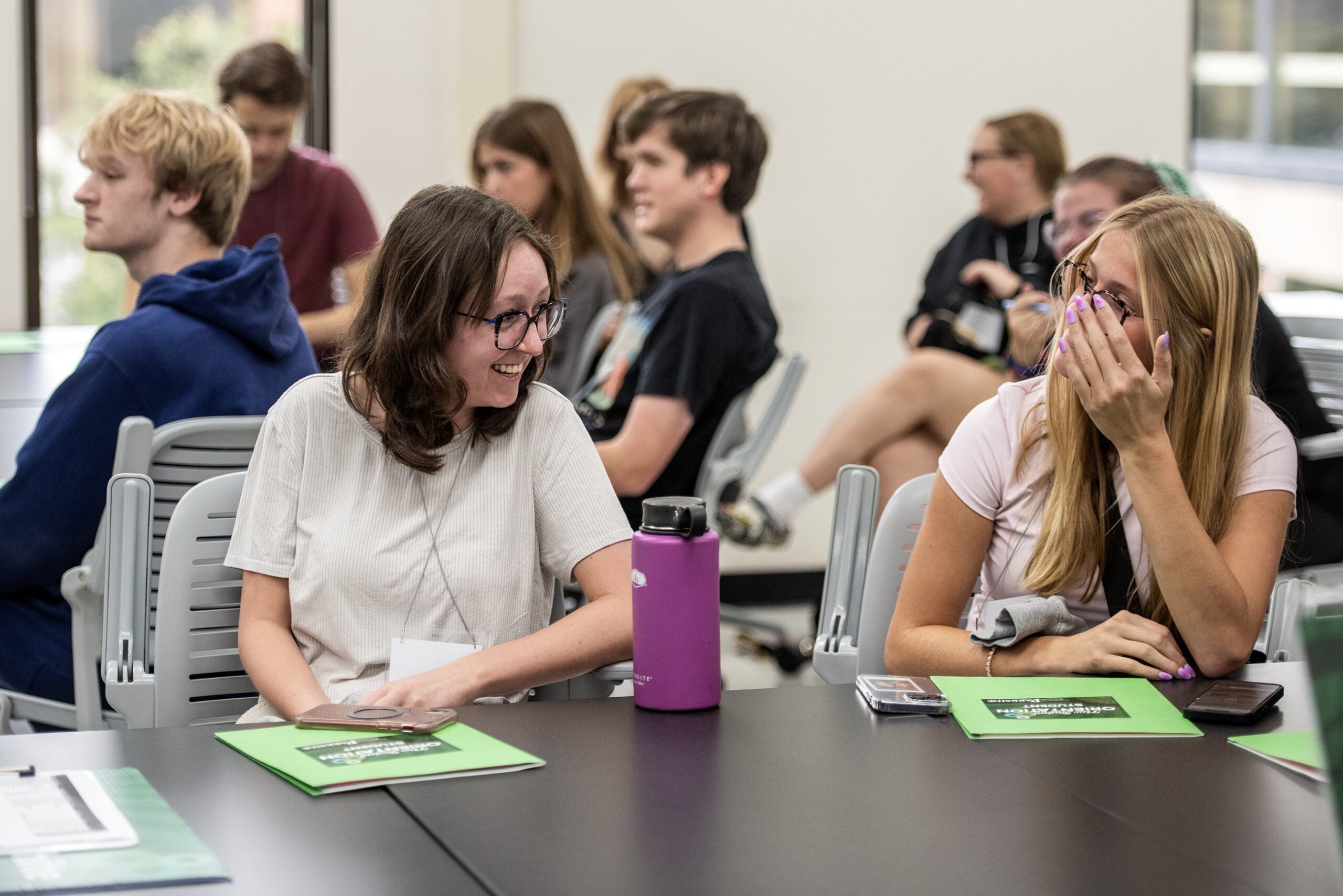
In emails, Republican activists pressured former regent, lawmaker to act against UW
Records from lawmakers obtained by WPR show that Republican officials are under pressure to demand changes within the university system.
In July, Winnebago County Republican Party Chair Ed Hudak, who in 2021 was criticized for sharing a racist meme claiming that warning signs of white supremacy include things like literacy and full-time employment, forwarded a Politico article to former Republican UW Board of Regents appointee Tim Higgins. It explained how a surge of college voting on the UW-Madison campus during the spring state Supreme Court race helped push liberal Justice Janet Protasiewicz to victory over former conservative Justice Dan Kelly.
Hudak asked Higgins whether Republicans should “even bother with college folks who generally are pretty lefty” or focus on motivating more Republicans to vote absentee.
Higgins now heads the Wisconsin group Free Speech for Campus. He served on an advisory panel that helped guide a campus free speech survey sent to UW students. That survey found those who identified as conservatives felt less comfortable expressing their views in class than their liberal counterparts.
Higgins replied that turning out conservative voters “is a higher priority and a quicker, more direct strategy for winning elections than is increasing viewpoint diversity on our college campuses.”
“However, we must realize that allowing institutions of higher education to continue the indoctrination of students and the intimidation of faculty will continue shrinking that base,” Higgins wrote. “Conservative voters are older, and we will soon die off in great numbers relative to the brain washed students graduating from our universities.”
A September email from retired attorney Bob Feidler, who serves on the Free Speech for Campus board of directors, to Assembly Colleges and Universities Committee chair Rep. Dave Murphy, R-Greenville, states, “Now is a great time to apply pressure” to the UW because “several components need money.”
Feidler refers to Vos playing “the role of bad cop” in the political fight over DEI and viewpoint diversity demands. He references a potential draft of questions for Rothman and suggests demanding a meeting aimed at “wringing out of Rothman his plan for the near term and intermediate futures for the UW System.”
“Rothman is a big boy; he ran a major law firm,” Feidler wrote. “He understands direct language and the role of leverage in the setting of goals.”
As conservatives work to dismantle DEI programs, some in the business community have come to their defense. In July, Tim Sheehy, president of the Metropolitan Milwaukee Association of Commerce, said companies are “fully embracing diversity, equity and inclusion efforts” despite GOP attacks on DEI initiatives within the UW System and city of Milwaukee.
“If you look at workplaces in Wisconsin, just put simply, we’re not going to fill those jobs with the white population,” Sheehy said. “It’s not growing fast enough.”
He said there have been barriers to Black, brown and other people coming into some jobs, and employers have to work to make those jobs attractive to those groups.
“I think Republicans should let the UW System and the city address those issues as they see fit,” Sheehy said. “And I don’t think it’s an area where the Legislature needs to be putting its fingers into either the UW System, quite frankly, or the city or private employers.”
Editor’s note: WPR staff are employees of UW-Madison. This story has been updated to clarify that Tim Higgins is a former member of the UW Board of Regents.
Wisconsin Public Radio, © Copyright 2025, Board of Regents of the University of Wisconsin System and Wisconsin Educational Communications Board.

